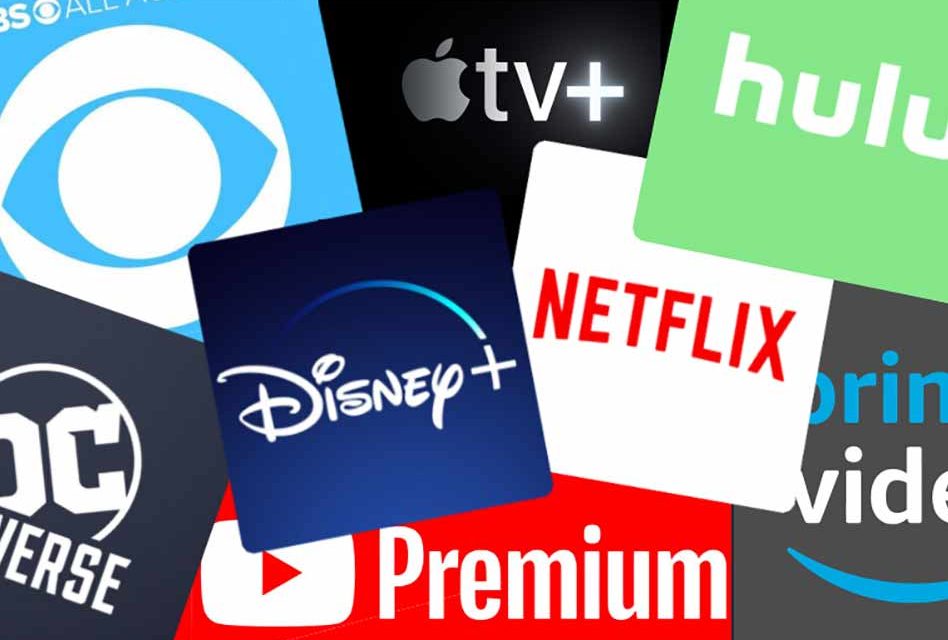Could the FCC Make Video Streamers Pay Into the Universal Service Fund?
Comments begin coming in on USF inquiry

The smarter way to stay on top of the streaming and OTT industry. Sign up below.
You are now subscribed
Your newsletter sign-up was successful
The FCC is starting to get input on its examination of the future of the Universal Service Fund. That input includes whether to make ISPs pay into the fund, as telecoms currently do, given that the baseline advanced communications service that USF is paying for is increasingly broadband rather than the phone service the program was designed for.
Also on the table is whether to make streaming services pay into the subsidy given that they are riding that broadband service into homes.
As edge providers have moved more into Washington's regulatory sites, there have been various efforts to bring over-the-top video into the FCC's ambit, including pushes to define over-the-top video providers as MVPDs and subject them to program access and carriage requirements, as the FCC once proposed under then FCC chairman Tom Wheeler, and to put them under the FCC's must-carry regime as well.
ISPs have also argued that the Netflix's of the world were pushing for middle-mile net neutrality to avoid paying for the upgrades needed to handle the increased traffic load their OTT services generate.
USF comments are due this week after stakeholders got an extension of the original January 31 deadline.
The FCC sought comment specifically on the impact of the Infrastructure Investment and Jobs Act's $65 billion investment in broadband on the Universal Service Fund advanced communications subsidy program.
That was the focus of the filing this week by the Communications Coalition of Kansas, which told the FCC that broadband networks will need money to upgrade because of the explosive increase in data on rural networks, driven primarily by video streaming services.
The smarter way to stay on top of the streaming and OTT industry. Sign up below.
Also: ISPs Point To Their Broadband Subsidy Efforts
The group said that Big Streamers -- the video distribution version of the current Washington epithet "Big Tech"-- made trillions of dollars while contributing "extraordinarily little" to support rural middle-mile and last-mile networks. Meanwhile, it said, rural ISPs invest millions in their networks per year, a dynamic the group said was "increasingly untenable."
The coalition stopped short of outright calling for streamers to pay into USF, but only by a whisker. "[W]e request that the FCC examine ALL the costs associated with providing broadband services and do whatever it can to end the free ride enjoyed by Big Tech and Big Streamers."
In its filing, the Ad Hoc Telecom Users Committee, comprising INCOMPAS (whose members include computer and web companies), NTCA – The Rural Broadband
Association, Public Knowledge, the Schools, Health & Libraries Broadband (SHLB) Coalition, and the Voice on the Net Coalition, focused on ISPs, not streamers.
The coalition told the FCC it was time to "expand the services that pay into the USF to include broadband internet access services (BIAS) ... [i]ncluding BIAS revenues in the contribution base is smart and equitable public policy that the FCC can implement quickly."
FCC Commissioner Brendan Carr made it clear where he still stood on the issue, which is been squarely behind making Big Tech pony up.
"Yes, the FCC should require Big Tech to start contributing a fair share," he tweeted in response to this story. "Consumers pay their own Internet bills PLUS an additional amount into a federal program that funds efforts to bridge the digital divide," he said. "Big Tech benefits from that program and should start contributing."■
Contributing editor John Eggerton has been an editor and/or writer on media regulation, legislation and policy for over four decades, including covering the FCC, FTC, Congress, the major media trade associations, and the federal courts. In addition to Multichannel News and Broadcasting + Cable, his work has appeared in Radio World, TV Technology, TV Fax, This Week in Consumer Electronics, Variety and the Encyclopedia Britannica.

